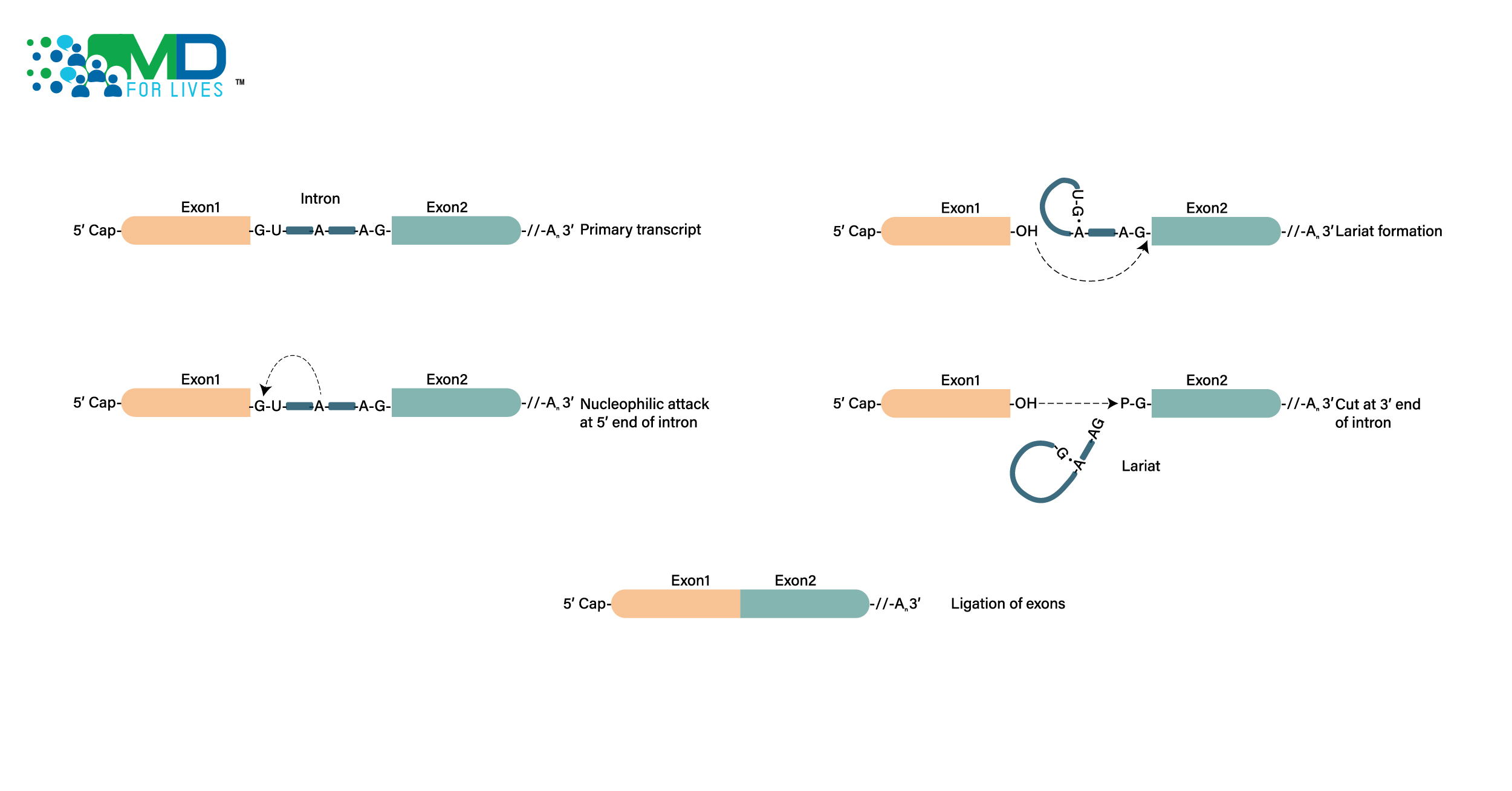Rare diseases affect over 300 million people globally, yet more than 90% of the patients still lack approved treatments. The challenge isn’t just scientific progress; it’s also getting the right clinical insights at the right time to drive development forward.
For groundbreaking progress in rare disease treatment, healthcare companies need comprehensive clinical insights that only come from real-world medical experience. This is where physicians come into the picture!
With firsthand experience in identifying subtle patterns and treating specific conditions, physicians play a significant role in closing the research gap. But most of this experience never gets documented or shared at scale.
Online medical surveys offer a simple way for physicians to share what they’re seeing in real time. It’s quick, structured, and designed to capture insights that can actually make a difference in the lives of rare disease patients.
Let’s delve deeper into how physicians can contribute to rare disease breakthroughs through medical surveys and why their voice is critical to shaping what comes next.
Rare Disease Research: 3 Key Challenges in Finding Cure
While rare diseases impact millions, developing treatments for them comes with unique challenges. These hurdles make it difficult for researchers to design trials and bring new treatments to the market.
Some of the key challenges are as follows:
1. Lack of Reliable Clinical Data
Due to the rarity of cases, traditional research struggles to collect crucial insights on symptoms, daily challenges, and disease patterns. Most conditions have low case volumes, scattered data, and delayed diagnoses – all of which slow down progress.
This lack of structure makes conclusions unreliable. Without input from physicians who see these variations firsthand, key details are missed in early development.
2. Inadequate Disease Knowledge and Expertise
A healthcare organization may have access to medical data but still miss critical insights specific to rare disease conditions. Why exactly does that happen?
Rare diseases often fall outside the scope of standard training and routine clinical exposure. Without direct experience with these cases, subtle patterns, symptoms, and treatment responses are often missed. Compounding this is the lack of consolidated research, which leaves even experienced professionals with limited clinical guidance.
This disconnect between available knowledge and real-world complexity often results in treatments that don’t fully address patient needs.
3. Insufficient Patient Numbers
Rare diseases, by definition, affect a small number of patients, often spread across regions with inconsistent access to care. This makes it difficult to identify, reach, and recruit enough participants for clinical trials or observational studies. Variations in how symptoms present, and progress, further limit the creation of standardized study groups.
That’s where physician input becomes essential! Physicians treating even a small number of patients can provide vital insights that guide research when patient recruitment is limited.
How Do Physician Insights Directly Impact Rare Disease Research
Physicians often notice patterns, responses, and symptom progressions that don’t show up in published books, case studies or thesis papers. Their clinical judgment adds depth to research by highlighting what works in practice – not just in theory.
In rare disease care, where trial data is limited, this frontline insight helps shape more accurate diagnoses, realistic treatment protocols, and targeted drug development.
Let’s look at how physicians’ unique perspectives strengthen rare disease research:
1. Influencing Drug Development

In rare disease research, drug development often begins with limited clinical data. Online medical surveys filled out by physicians help bridge these gaps with real-world information – from how symptoms evolve, to how patients respond to alternative treatments or combination therapies.
This data shapes key decisions around molecule selection, trial design, dosage, and delivery methods. It ensures that development isn’t based just on theory, but on clinical patterns observed directly in practice.
2. Shaping Regulatory Approvals
Before any new medical resolution is brought into patient care, it must meet both clinical and ethical requirements. Gathering physician expertise through online medical survey helps ensure these standards are met from the initial phase itself.
In fact, regulatory bodies like the FDA and EMA value clinical insights grounded in practice. Including physician input early can add credibility to the application and improve approval timelines.
3. Redefining Patient Care Standards
Physicians are often the first to notice unusual patterns in how rare diseases present, progress, or respond to treatment. When this knowledge is captured through surveys, it helps researchers and policymakers refine care protocols based on real clinical scenarios.
Participating in medical market research also prompts physicians to revisit rare cases, sharpen diagnostic memory, and improve early recognition, leading to faster diagnoses and more informed care decisions.
Why Should Physicians Engage in Online Surveys
It’s quite evident that physicians bring tremendous benefits to research, but what do they gain out of it?
According to the Physicians Thrive’s 2024 report, only 10% of physicians feel adequately paid, compelling them to look for passive income sources. Online medical surveys offer a chance to earn extra income while gaining valuable professional experience in rare disease research. Here’s an overview of the benefits they get to enjoy:
1. Become a Catalyst for Rare Disease Breakthroughs
Physicians have the power to drive significant changes in healthcare, even if they aren’t the ones developing the treatments themselves.
Let’s understand this through Dr. Emil Kakkis’s example:
Dr. Emil Kakkis is a prominent name in the medical field whose enzyme replacement therapy revolutionized care for mucopolysaccharidosis (a rare disease). His work not only helped save countless lives but positioned him as a leading authority in the rare disease field.
To make a mark like him in the medical field, physicians don’t necessarily need to develop a groundbreaking treatment, as not all will have the time and resources for that. Just by participating in the online medical survey, they can share insights to shape treatments for untreatable conditions.
When these approaches succeed, physicians gain recognition and boost their standing in the medical community.
2. Develop a Side Hustle That Offers Good Compensation
For physicians, finding time to develop a side hustle can be time consuming with an already crushing workload. Paid online surveys for physicians offer a perfect solution to this issue, compensating them for their expertise.
By answering questions about rare diseases based on their clinical experience, physicians can easily earn anywhere between $50 to $200 per study!. Best of all, these surveys typically need just 10 to 30 minutes to complete, making them easy to fit in between appointments or during downtime.
3. Gain Insider Knowledge on Cutting-edge Treatments
Online medical surveys often focus on new therapies, evolving treatment protocols, and early-stage clinical innovations. By sharing their frontline experience, physicians help shape how these treatments are evaluated, refined, and eventually brought to patients.
This involvement not only supports better drug development but also keeps physicians aligned with the direction rare disease care is heading, without disrupting clinical practice.
4. Build on Their Expertise
When physicians join rare disease research through a paid medical survey platform, they get a chance to connect with other physicians practicing in their specialty or related fields. These connections open doors to collaboration, knowledge sharing, and mentorship opportunities that can enhance their understanding of complex medical challenges.
5. Elevate Ethical and Inclusive Research
Physicians have a duty to make sure treatments meet both ethical and medical standards. Online medical surveys help shape targeted treatment plans that are developed with different patient needs and backgrounds in mind.
Plus, many rare disease patients face treatment delays, misdiagnosis, and limited care options. By participating in rare disease research, physicians can voice out these struggles and help shape healthcare policies that address their unique needs.
Online Medical Survey: A New Approach for Busy Physicians
It’s a common misconception that participating in research requires physicians to leave their practice or join large healthcare institutions. But that’s far from the truth. Today’s online paid medical surveys offer them a direct path to contribute to rare disease breakthroughs while maintaining their clinical work alongside.
These surveys are built to gather in-depth insights in a time-efficient format. Instead of generic responses, they capture experienced judgements that trial data alone can’t offer. When used effectively, this format helps convert clinical experience into actionable insight for drug development and care strategy.
The following checklist outlines how physicians can participate with focus and impact.
1. Be Selective and Not Just Active
Physicians are often approached by multiple survey platforms. But unfortunately, not all are worth the time. The focus should be on surveys that contribute to clinical progress, particularly those tied to drug development, treatment pathways, or patient outcomes.
Choosing relevant paid medical survey ensures physicians’ expertise supports research that leads to a fruitful change. These opportunities also tend to be more rewarding – both in terms of compensation and medical advancement.
2. Think Like a Consultant, Not Just a Participant!
Physicians bring clinical experience that goes beyond ticking boxes. Online medical surveys should be seen as a chance to offer expert input, where real-world, case-informed responses help shape research findings.
High-quality insights not only enhance data reliability but also strengthen credibility with research teams. This level of engagement can lead to follow-up opportunities, including specialized studies or advisory roles in future projects.
3. Consider it as a Professional Investment
Participating in rare disease research through medical surveys offers physicians an opportunity to immerse themselves in cutting-edge developments that shape future standards of care. It sparks curiosity and often leads them to delve deeper into emerging treatments and advancements, driven by the sheer joy of discovering new information and expanding their knowledge.
These surveys not only enhance professional expertise but also provide steady financial rewards, creating a reliable secondary income stream without interfering with their day-to-day responsibilities. It’s a fulfilling blend of intellectual growth and practical benefits, making it a valuable endeavor for physicians.
Turn Your Clinical Expertise into Impact!
The success of medical research doesn’t just lie in clinical trials or lab results — it’s deeply rooted in the hands-on experience of physicians like you, who meet and treat patients every single day. Therefore, by sharing your trivial insights through medical surveys, you can contribute to curating treatments that could directly impact millions of patients’ lives.

MDForLives is a platform where physicians can add their expertise to influence the next generation of healthcare. Our medical surveys offer physicians a flexible, rewarding way to engage with the latest advancements in medicine without interrupting daily clinical responsibilities.
So, don’t let this opportunity slip by! Join MDForLives today and turn your clinical experience into a catalyst for change – all while making money for your valuable time.!
FAQs:
-
Why is Medical Research Important in Disease Diagnosis?
Through research, medical professionals identify new drugs and procedures that can treat diseases. It also helps create devices for people with chronic conditions to improve their lives and tools that accurately identify problems. By studying various conditions with research, medical experts find ways for early detection, offering solutions before diseases progress.
-
Why is Researching Rare Diseases Important?
Rare diseases touch about 300 million people worldwide, according to Global Genes, with many still waiting for effective treatments. Research into these conditions directly helps affected families and individuals while improving healthcare quality overall.
Even when if it’s not possible to create a complete cure, these rare disease studies can help design treatments that make daily life better for those facing these challenges.
-
What are the Challenges of Rare Disease Research?
The major hurdle in rare disease research includes limited funding available for conducting studies. Many companies have little to no experience with rare diseases, creating barriers to diagnosis, treatment, and advocacy. There is also the issue of how to prioritize limited resources and ensure fair access to costly treatments.
-
Do I Need Rare Disease Expertise to Participate?
Physicians don’t need rare disease expertise to be part of medical surveys. Medical professionals from all backgrounds can participate and share their real-world observations and experiences. However, some surveys might have specific eligibility requirements, so it’s important to read their guidelines before starting.
References:
- Every cure
https://everycure.org/the-problem/
- A comprehensive study of the rare diseases and conditions targeted by orphan drug designations and approvals over the forty years of the Orphan Drug Act
https://pmc.ncbi.nlm.nih.gov/articles/PMC10290406/

The creative force behind the keyboard, Pallabi crafts narratives of healthcare wonders and research marvels. As a seasoned professional blogger, she ventures to unearth the riches of medical innovation, weaving them into insightful stories that educate.






